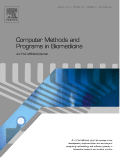
Biomedical Engineering Letters
metrics 2024
Advancing biomedical innovation through shared knowledge.
Introduction
Biomedical Engineering Letters, published by SpringerNature, is a prominent journal in the field of Biomedical Engineering. With a robust ISSN of 2093-9868 and E-ISSN of 2093-985X, this esteemed journal has established itself as a vital resource for researchers and professionals seeking to advance their knowledge and share groundbreaking findings. Recognized for its quality, Biomedical Engineering Letters holds a distinguished ranking in Scopus, positioned at #94/303 (69th percentile) in the Biomedical Engineering category. The journal covers a diverse scope within biomedical engineering, providing an important platform for innovative research from 2011 to 2024 and facilitating the exchange of ideas among scholars. Although it operates under a subscription model, the journal's commitment to enhancing the field makes it an indispensable reference for those engaged in cutting-edge biomedical research in Germany and globally.
Metrics 2024
 0.65
0.65 3.20
3.20 4.20
4.20 40
40Metrics History
Rank 2024
Scopus
IF (Web Of Science)
JCI (Web Of Science)
Quartile History
Similar Journals

JOURNAL OF MATERIALS SCIENCE-MATERIALS IN MEDICINE
Unleashing the Potential of Materials in Medical ApplicationsJOURNAL OF MATERIALS SCIENCE-MATERIALS IN MEDICINE is a leading peer-reviewed journal published by Springer, dedicated to advancing the field of biomedical materials science. With an ISSN of 0957-4530 and E-ISSN 1573-4838, this Open Access journal has been committed to providing researchers and professionals with freely accessible, high-quality research since 2021. It features an extensive scope spanning bioengineering, biomaterials, biomedical engineering, and biophysics, reflecting its significant impact within these interdisciplinary domains. Recognized within the Q2 category of the 2023 rankings in multiple fields, the journal proudly positions itself as a crucial resource for innovative materials that contribute to advancements in medical applications. With impressive Scopus rankings, including 26th in Biophysics and 40th in Materials Science for Biomaterials, researchers, students, and industry professionals alike can rely on this publication for cutting-edge insights that drive the future of medical materials and technologies. Based in Dordrecht, Netherlands, the journal provides a vibrant platform for sharing groundbreaking discoveries and fostering collaborative research among a global audience.

INTERNATIONAL JOURNAL OF IMAGING SYSTEMS AND TECHNOLOGY
Advancing Imaging Knowledge for Tomorrow's InnovationsINTERNATIONAL JOURNAL OF IMAGING SYSTEMS AND TECHNOLOGY, published by Wiley, is a leading journal dedicated to advancing the field of imaging systems and technologies. With an ISSN of 0899-9457 and E-ISSN 1098-1098, this esteemed journal offers a platform for high-quality research spanning essential interdisciplinary areas, including Biomedical Engineering, Computer Science, and Health Informatics. Recognized for its impactful contributions, it holds a commendable position in the Q2 quartile across multiple categories as of 2023. The journal boasts an excellent Scopus ranking, with notable acknowledgments like rank #49 out of 333 in Radiology, Nuclear Medicine, and Imaging, showcasing its relevance and importance in the academic community. Publishes annually from 1989 to 2024, it aims to bridge gaps in knowledge and foster innovative developments through rigorous peer-reviewed articles. Though it operates under a traditional access model, the journal maintains an accessible repository of cutting-edge research, making it indispensable for researchers, professionals, and students alike seeking to stay at the forefront of imaging technology advancements.

CONCEPTS IN MAGNETIC RESONANCE PART B-MAGNETIC RESONANCE ENGINEERING
Advancing Magnetic Resonance Engineering for a Healthier Tomorrow.CONCEPTS IN MAGNETIC RESONANCE PART B-MAGNETIC RESONANCE ENGINEERING is a premier journal published by WILEY-HINDAWI, dedicated to advancing the field of magnetic resonance engineering. With an ISSN of 1552-5031 and E-ISSN 1552-504X, this journal offers an Open Access platform since 2022, ensuring that research is freely accessible to scholars worldwide. Covering a broad spectrum of applications in medicine, radiology, nuclear medicine, and imaging, it serves as a key resource for professionals looking to stay updated with the latest advancements and innovations in the field. The journal enjoys notable rankings in various categories, including a rank of #137 in Medicine and #26 in Health Professions within Scopus, reflecting its importance and influence in both academic and clinical settings. As a vital conduit for cutting-edge research, CONCEPTS IN MAGNETIC RESONANCE PART B is committed to fostering the growth of knowledge while addressing the critical challenges and technological enhancements within magnetic resonance methodologies. Researchers, professionals, and students can expect to find comprehensive articles that adhere to high scientific standards, promoting discourse and collaboration across disciplines.

Biomedical Physics & Engineering Express
Pioneering Innovations in Healthcare TechnologyBiomedical Physics & Engineering Express, published by IOP Publishing Ltd, serves as a dynamic platform for the dissemination of groundbreaking research in the interdisciplinary domains of biomedical physics, engineering, and related fields. With a focus on innovative solutions for healthcare challenges, the journal extends its reach to a global audience, providing valuable insights that influence both academic research and practical applications. Operating under an open-access format, this journal ensures that vital scientific discoveries are readily available to researchers, professionals, and students alike. Ranking within the Q3 and Q4 quartiles across various categories—including Bioengineering and Biomedical Engineering—indicates its emerging influence in the scientific community since its inception in 2015. With an increasing footprint in Scopus rankings and a commitment to advancing knowledge in subfields such as biophysics and health informatics, Biomedical Physics & Engineering Express plays a crucial role in shaping future innovations in healthcare technology and patient care.

Journal of Medical Signals & Sensors
Connecting Research and Practice in Medical TechnologyJournal of Medical Signals & Sensors, published by Wolters Kluwer Medknow Publications, is a pioneering platform in the fields of Biomedical Engineering, Computer Science, and Health Informatics, focusing on innovative research and advancements in medical technology. With an Open Access policy since 2012, the journal promotes widespread dissemination of knowledge, aiming to facilitate the sharing of vital insights and developments among researchers, healthcare professionals, and students globally. The journal has achieved commendable rankings in its various categories, including Q3 in Biomedical Engineering and Radiology, underscoring its importance in advancing health technology and informatics. Its commitment to rigorous peer review ensures that published works are of the highest quality, making it a valuable resource for those engaged in cutting-edge medical research. With annual publications planned through 2024, the Journal of Medical Signals & Sensors continues to expand its influence and relevance in a rapidly evolving scientific landscape.

Bioengineering-Basel
Pioneering Innovation in BioengineeringBioengineering-Basel, an esteemed journal published by MDPI, stands at the forefront of innovation in the field of bioengineering since its inception in 2014. With an E-ISSN of 2306-5354, this fully Open Access journal based in Switzerland provides a platform for researchers and professionals to disseminate cutting-edge findings across various aspects of bioengineering, including biomaterials, tissue engineering, and biopharmaceuticals. The journal has been recognized with a Q3 ranking in the 2023 Bioengineering category, reflecting its commitment to quality and relevance. By facilitating widespread accessibility to academic knowledge, Bioengineering-Basel aims to foster collaboration and stimulate thought leadership within the global research community, making it an indispensable resource for students, scholars, and industry practitioners alike.

VIEW
Connecting Researchers to the Cutting Edge of Biomaterial Science.VIEW is a prestigious journal published by WILEY that focuses on the rapidly evolving fields of Biomaterials and Biomedical Engineering. Since its inception in 2020, VIEW has established itself as an open-access platform dedicated to disseminating high-quality research and innovation within these disciplines. With an impressive impact factor that places it in the Q1 category of both Biomaterials and Biomedical Engineering, VIEW ranks among the top journals in its field, boasting a 91st percentile ranking in Biomedical Engineering and an 85th percentile ranking in Materials Science. Researchers, professionals, and students are encouraged to utilize this invaluable resource, as it provides a comprehensive view of current advancements and future trends in biomaterial science and engineering. Positioned in the United Kingdom, VIEW operates as a vital scholarly communication link, fostering collaboration and knowledge sharing within an ever-growing global community.

Computer Methods and Programs in Biomedicine
Unleashing the Power of Computing in Biomedical Discoveries.Computer Methods and Programs in Biomedicine, published by ELSEVIER IRELAND LTD, is a leading journal at the intersection of computer science and biomedical research. With an impressive impact factor evidenced by its Q1 rankings in multiple categories—Computer Science Applications, Health Informatics, and Software—this journal ranks highly among peer publications, showcasing its significance in advancing interdisciplinary research. Covering a wide array of topics since its inception in 1985, it is particularly crucial for those invested in the innovation of computational methods applied to the biomedical field. The journal has established a strong reputation, with Scopus rankings placing it in the top percentiles across its relevant sectors, including the 14th position out of 138 in Health Informatics. Researchers, practitioners, and students looking to explore current trends, methodologies, and advancements in biomedical applications of computer science will find this journal an invaluable resource.

ANNALS OF BIOMEDICAL ENGINEERING
Empowering the next generation of biomedical engineers.ANNALS OF BIOMEDICAL ENGINEERING is a premier journal in the field of biomedical engineering, published by Springer. Established in 1972, this journal has become a vital resource for researchers, professionals, and students engaged in the rapidly evolving domain of biomedical technology. With a commendable impact factor and ranked in the 76th percentile among its peers as per Scopus, it exemplifies excellence in disseminating critical research findings. The journal covers a broad scope of topics related to the integration of engineering principles with medical and biological sciences, facilitating innovations that enhance healthcare outcomes. Although open access is not offered in this journal, it remains an essential platform for scholarly communication, contributing to the continuous advancement of knowledge in biomedical engineering. ANNALS OF BIOMEDICAL ENGINEERING is not only a bridge for academics to share groundbreaking research but also an influential guide for practical applications in medicine and health technologies, making it a fundamental publication for its readership.

Biomedical Engineering-Biomedizinische Technik
Transforming Healthcare Through Cutting-edge ResearchBiomedical Engineering-Biomedizinische Technik, published by WALTER DE GRUYTER GMBH, serves as a pivotal platform for advancing knowledge in the field of biomedical engineering and medicine since its inception in 1956. With an ISSN of 0013-5585 and an E-ISSN of 1862-278X, this peer-reviewed journal offers accessible insights into innovative research and technological advancements that are reshaping healthcare practices and biomedical applications. Although rated in the Q3 category for both Biomedical Engineering and Miscellaneous Medicine in 2023, the journal's impact factor and growing reputation demonstrate its vital role in fostering academic dialogue and collaboration. The journal is based in Germany, while its scope encompasses a diverse range of topics, thus bridging the gap between engineering and medical disciplines. Researchers, professionals, and students alike are encouraged to engage with the content that not only highlights contemporary challenges but also presents groundbreaking solutions in biomedical technology.